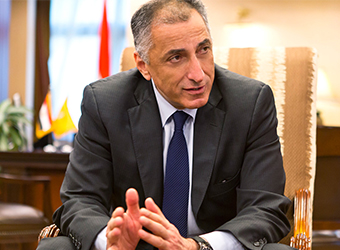Foreign investments in the Egyptian treasury bills have increased to $10.2 billion since Nov.3 decision to float thee local currency, central bank governor Tarek Amer said on Monday.
In October, the investments accounted for less than $1 billion, Amer said in a statement following a meeting with the Egyptian Parliament’s Economic Affairs Committee, which tackled the recent developments in the country’s foreign reserves from 2010 until 2016.
Amer further said that the flotation of the Egyptian pound had also resulted in an increase in the amount of foreign and Arab transactions in the local stock market as well as in the banks’ foreign currency liquidity. Foreign investors’ cash flows rose to $900 million since the flotation move, he added.
Foreign investments, especially hot money invested in treasury bills, fled from Egypt when the revolution began. These investments continued shrinking gradually until they faded away completely a year after the uprising.
Foreign investment in Egyptian treasury bills partially returned over the years following 2011, but did not approach the levels they were before the revolution to date.
On November 3rd, Egypt’s central bank decided to freely float the pound and raise key interest rates as part of a set of reforms aimed at alleviating a dollar shortage and stabilising the national flagging economy. CBE also said there will be no limits on foreign currency deposits or withdrawal for both individuals and firms, and no conditions will be imposed on the depositing of foreign currency.


